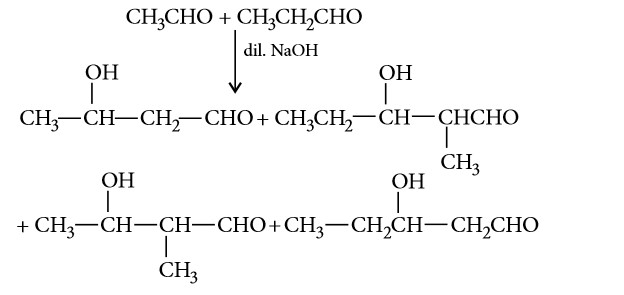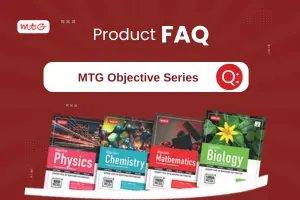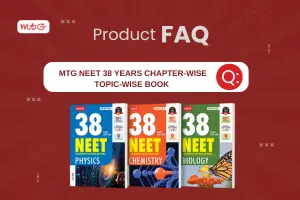Organic Chemistry is the branch of chemistry that deals with the study of compounds containing carbon atoms. Organic Chemistry is given a higher weightage in the CBSE Syllabus, and it is simple to get good grades in Organic Chemistry. To completely understand and ace your exams one must need to get into the depth and must focus on all the points, Below I have mentioned 10 important named reactions in organic chemistry that you will find helpful in your upcoming exams.
What is the phenomenon of Name reactions in organic chemistry?
The core of the subject is present in Name Reactions, Chemical formulae, Structures, and Numerical Problems. Let’s understand the phenomenon of Name reactions
A chemical reaction is a process in which one or more substances (reactants) combine/ react with each other to form one or more products.
Reactants———–Products
Name Reaction: A name reaction is a reaction that has given a name after the name of a person who discovered it. The name given to these reactions are mnemonics. These name reactions are crucial for any student preparing for the CBSE Boards, JEE main exam, or NEET. The main problem with these reactions is that they can’t be learned via rote learning. To fully comprehend the name reaction and its applications, one needs to understand the mechanism underlying these reactions.
Best Books For Name reactions in organic chemistry
Before we go further, we would like to add- don’t try to rote learn Organic Chemistry, you’ll fail, miserably. It’s good if you clear your basic concepts first. And to grasp the basic concepts, refer to the NCERT NEET Books and develop better understanding by practicing from NCERT at your Fingertips . The combination of both will lend a crystal-clear understanding of each and every NCERT concept. You can also refer to Interactive Organic Chemistry book. It is designed to provide a blend of theoretical clarity on all the topic of Organic Chemistry along with optimum number of solved examples, flow charts and practice exercises.
Learn complete reaction mechanism throughly for better understanding from MTG’s Reaction Mechanism book. It gives step by step illustration of reactions process of each and every name reactions given in NCERT syllabus.
Related Article: How To Read NCERT Books For NEET Exam 2022 – 5 Powerful Learning Hacks
10 Name Reactions in Organic Chemistry | NEET, and JEE
Now coming to the top 10 Important Name Reactions which every NEET and JEE aspirants should know, here we go:
- Aldol condensation
- Clemmensen reduction
- Crossed aldol condensation
- Cannizzaro reaction
- Etard reaction
- Friedel—Crafts alkylation
- Friedel—Crafts acylation
- Gabriel phthalimide synthesis
- Haloform reaction
- Hell-Volhard-Zelinsky reaction (HVZ reaction – Halogenation)
- Aldol condensation
Two molecules of aldehydes or ketones having a-hydrogen condense together in presence of base [dil. NaOH, Na2CO3, Ba(OH)2] to form b-hydroxyaldehyde or b-hydroxyketone respectively which are collectively known as aldol.
- Clemmensen reduction
In this method, aldehydes and ketones are reduced with Zn – Hg amalgam and conc. HCl.
- Crossed aldol condensation
Aldol condensation of different molecules of aldehydes or ketones or one of aldehyde and one of ketone is known as crossed aldol condensation. Crossed aldol condensation yields a mixture of different products.
- Cannizzaro reaction
It is a self-oxidation-reduction reaction in which aldehydes that do not have any a-hydrogen atom undergo disproportionation reaction (i.e., self-redox reaction) in the presence of 50% aqueous or ethanolic solution of alkali in which one of the molecule being reduced to alcohol and other being oxidised to the salt of corresponding acid.
- Etard reaction
Aromatic hydrocarbons on treatment with mild oxidizing agents such as chromyl chloride CrO2Cl2 yield aldehydes.
- Friedel—Crafts alkylation
Simple aromatic hydrocarbons can be converted to substituted hydrocarbons by reaction with alkyl halide in presence of Lewis acid like AlCl3 or FeCl3, etc.
7. Friedel—Crafts acylation
Acid anhydrides on reaction with benzene in presence of Lewis acid such as anhydrous AlCl3 give acylated benzene and thus yields aromatic ketones.
- Gabriel phthalimide synthesis
Phthalimide on reaction with caustic potash forms potassium phthalimide which on treatment with alkyl halide gives N-alkyl phthalimide. This N-alkyl phthalimide on hydrolysis with hydrochloric acid yields primary amines.
- Haloform reaction
Methyl ketones on oxidation with sodium hypohalite (NaOX i.e. NaOH + X2) yield haloform along with sodium salt of carboxylic acid with one carbon atom less than the starting ketone.
- Hell-Volhard-Zelinsky reaction
(HVZ reaction – Halogenation)
Aliphatic carboxylic acids on reaction with bromine or chlorine in presence of small amount of red phosphorous produce a-haloacids.
MTG’s NEET Exam Books has plenty of Chemistry Resources which are housed with lucid and vivid content that you will not find complex concepts any difficult to understand and learn. Recommended and appreciated for its quality and authenticity, MTG’s resources must be your companion to make big in NEET/JEE/Boards Exams.
All the best and may the force be with you!
Latest – NEET Previous Year Question Paper With Solutions PDF Free Download
Important – NEET Chapterwise Questions Biology with Answers
Preparing for NEET 2023? check out – NEET Sample Paper With Solution PDF Download
Also Check out: 30 Days NEET Planner to boost your NEET 2023 Preparation








































